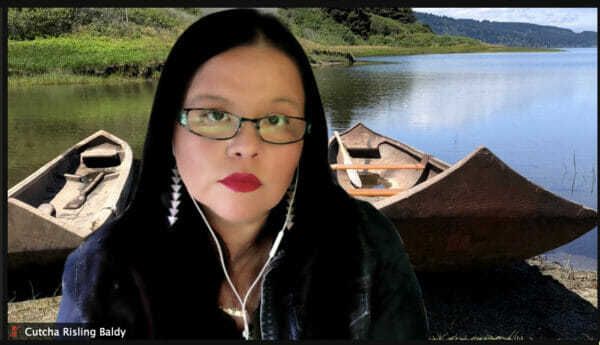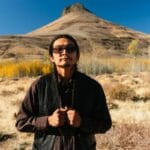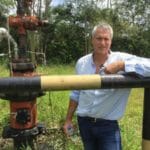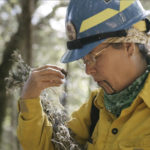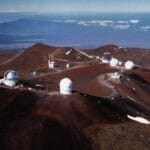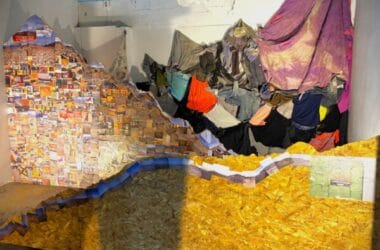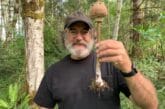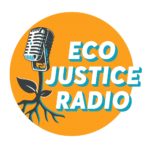

Subscribe to EcoJustice Radio:
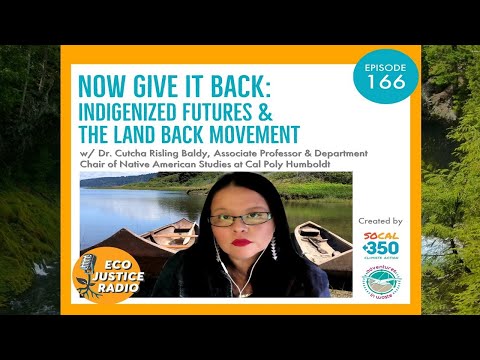
Watch this video on YouTube
Land Back, the movement to return the stolen lands of the USA, also known as Turtle Island, to the original Indigenous peoples who inextricably belong to them, has been accelerating for some time now. Indigenous peoples have “lost” roughly 99% of the lands they once inhabited, according to a 2021 data set published in Science. 42% of tribes in historical records have no recognized land base today.
Radical imagination is required to forge a new, and also perhaps ancient way out of the injustices and destruction inherent in settler colonialism. As our guest Dr. Cutcha Risling Baldy, Associate Professor and Department Chair of Native American Studies at Cal Poly Humboldt, reminds us, decolonization IS land back. Knowing we live on occupied lands, what are we compelled to actually do or change? What is our personal responsibility to the Indigenous peoples and lands where we have “settled?” The time is ripe for actions over tokenism and superficial gestures.
STORY: Dam-Free: Indigenous Peoples Reclaim the Klamath River
Interview Excerpts on Land Back Movement
Carry Kim: Thank you so much for being on the show. We’ve been looking forward to this for a long time. I wanted to begin with a quote from you. “Our knowledge of place is thousands of years old. Our ability to manage in a way that centers land, life and futures is what will solve this problem. We are not coming to the table just to be heard. We are coming to the table because we know something has to be done.” What is that something? Would you say that giving land back is the most obvious and urgent step that we need to take to accelerate restoration of the world?
Dr. Cutcha Risling Baldy: In my opinion, I think it’s the step that’s actually going to help us to make a difference in what needs to happen so that we can start thinking beyond colonialism and capitalism. What I’m always telling people is that Indigenous Peoples are the peoples of place who have existed here before colonialism and capitalism, which means we have a memory of it. We know that what a world looks like, what a world functions like. And therefore, we also know a world post capitalism and colonialism. And we can story it and talk about it and envision it because we’ve lived it. And so I think Land Back is an opportunity to start to see. When we think about a world where everyone can breathe and everyone can drink the water and everyone can breathe the air and enjoy themselves. I think we’re not asking for much as human beings, and it’s us that really are the people that can help to reconfigure that in a way that doesn’t just repeat colonialism again. But instead, there’s something else. There’s something else that we can do.
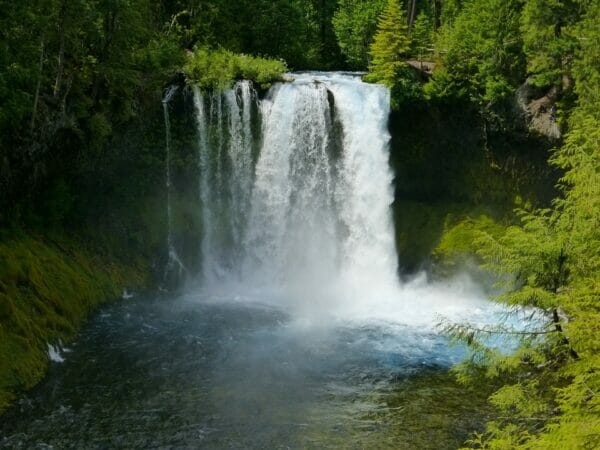
On Decolonization and Stolen Land
Carry Kim: I think what you said about that you have a memory of before capitalism and imperialism materialism is really critical for people to remember that. But you’ve stated that clearly that decolonization is land back. And you mentioned that people are not really decolonizing until they give lands back. So would you like to say anything to those people who they might use these terms like, I’m decolonizing my mind, I’m decolonizing my diet or these institutions? And what do you have to say to people who use that word?
Dr. Cutcha Risling Baldy: I think that we have some really good scholars that have done work on this, especially Eve Tuck and Kwame Yang, who wrote a really great article called “Decolonization Is Not a Metaphor.” And really talking about when we’re talking about decolonization, we’re not talking about decolonizing our bookshelves or our minds. We’re talking about the actions that need to happen so that we can really deconstruct what it is that is building this system that is keeping us all in this space where we don’t feel good about the planet and the direction that things are going in. So it’s very obvious, I think, to us that it’s not the answer, that we should just be living in a world where we can’t actually drink the water or go swimming sometimes, or that it’s not a space that we’re supposed to be living in this way that we exist right now.
I always help people I talk to — it’s very clear to me when you start talking to people, that they all go like, I don’t think the world is supposed to function in a way where I don’t have a house or a place to live. I always say it won’t even give you a house. It won’t even give you the food you need to eat. It won’t even make sure that you can live a day without being stressed out about what’s going to happen. We know that that’s not the world that we want to create together. So decolonization has to be a way that we’re putting tangible effort into what that world is going to look like. And that comes from true dismantling of this system. And I think that starts with Land Back, because the initial sort of theft of land was what was at the heart of how they were going to remake this world through imperialism and capitalism and colonialism. And so the land return helps a reconnection that rebuilds for everyone.
We were always thinking about land as this really important relationship that we were entering into. And when colonialism invades and comes in, it doesn’t build that relationship. And so that stoppage that we are breaking. That’s the thing we’ve been trying to repair. And I think when you repair that, you repair that for everyone. You don’t just do it for a singular group of people. It, to me, is the answer for how are we going to push back against climate change? Colonialism caused climate change. You’re not going to solve climate change with colonialism. You have to do something that actually reconfigures the world in a way that says you’re supposed to be here in a good way. And I think Indigenous peoples have been living that since the beginning of time.
STORY: The Maori Way of Water on EcoJustice Radio
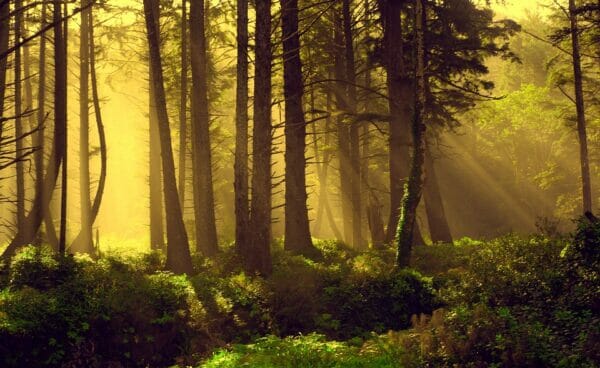
Carry Kim: Yeah, exactly. Completely agree with you. I wonder if you could please share the computer analogy. Maybe you’ve told it a million times, but I think it’s just so clear and succinct and it really explains what needs to happen and why. Because people have their excuses around not being able to give land back in their minds. But, uh, I think the computer analogy is very good. If you could please share that.
Dr. Cutcha Risling Baldy: Yeah, we’re always talking about this idea that all land is stolen, Indigenous land. And you look at history and you go, well, it doesn’t feel stolen to me, but I always say to people, it’s all stolen. So let’s say you had a computer. Everybody probably has a computer at home. And one day, somebody in your life and I always use the example of, like, if you’re living with someone, like your roommate’s, significant other shows up and steals your computer from you, and then periodically shows up and uses it in front of you and what do you do?
And I asked people, like, what do you do? And they say, Well, I would ask him to give it back to me. I’d say give it back. You stole my computer. And I said, well, what if he looks at you and he goes, you weren’t really using it. Like, when I discovered it, it wasn’t being used. It was just sitting there. It didn’t feel like anybody owned it, so I just took it. You just go, oh, sorry, I didn’t make it clear it was mine in some way. No, you’re going to say, Please give it back to me. And then he starts to sort of make excuses. So he’ll be, well, okay, selfish, like, you really want this thing back that I stole from you? How about instead of giving it back to you I put a sticker on it and it says that it used to belong to you, but now it belongs to me. And wouldn’t that be a good thing? Because I’m acknowledging that it used to belong to you.
And you’re going to be like, cool, thanks so much? I don’t need my computer back? I was like, no, you’re going to be like, hey, can I just have it back? You’re sitting here with it and I’m here, and I would like it back. I was like, now he comes to you and he says instead of you, having to just get it back. Why don’t we make an agreement and we come manage this computer and then sometimes I can use it and sometimes you can use it. You’ll have like a 50-50 sort of say in what happens to this computer. Everything except for the obvious thing, which is you should return it. You should return it to who it was stolen from.
It is very clear in most cases, I can do research for people, I can show them where land was stolen. It was outright stolen, and it was stolen against the laws of the United States itself. So it’s the US government breaking its own laws to steal land from Indigenous Peoples. And knowing that, what does that mean for us as people today? That then what you are essentially doing is trying to sort of get out of returning this stolen item that you know is stolen. And there’s no real kind of justification for it. The more you keep adding to it, I was like, what if every time, every time they stand up, they’re going to tell everybody, hey, this computer used to belong to this person. Is that good enough? Right? Like, we can keep adding in all the sort of myriad of ways people try to approach this, but the real response is to return it, and then see what happens, like, what builds from that repairing of this relationship.
For an extended interview and other benefits, become an EcoJustice Radio patron at https://www.patreon.com/ecojusticeradio
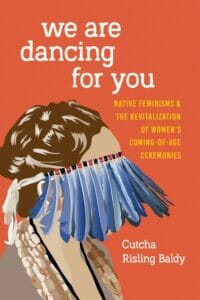
Carry Kim, Co-Host of EcoJustice Radio. An advocate for ecosystem restoration, indigenous lifeways, and a new humanity born of connection and compassion, she is a long-time volunteer for SoCal350, member of Ecosystem Restoration Camps, and a co-founder of the Soil Sponge Collective, a grassroots community organization dedicated to big and small scale regeneration of Mother Earth.
MORE INFO
- “Tending Nature: Indigenous Land Stewardship.” KCET documentary film series. https://www.kcet.org/shows/tending-nature/special/indigenous-land-stewardship
- Episode 19: Decolonizing Water Part I Water Talk Podcast https://www.watertalkpodcast.com/episodes/episode-19
- ”Reviving Relationships with Our Foodways: A History of Indigenous Food Sovereignty in California and Beyond” by Dr. Cutcha Risling Baldy and Dr. Kaitlin Reed (co-directors of the FSL). https://cooperationhumboldt.com/food-guide-2021/
Podcast Website: http://ecojusticeradio.org/
Podcast Blog: https://www.wilderutopia.com/category/ecojustice-radio/
Support the Podcast: https://www.patreon.com/ecojusticeradio
Executive Producer: Jack Eidt
Hosted by Carry Kim
Intro By: Jessica Aldridge
Engineer and Original Music: Blake Quake Beats
Episode 166
Photo credit: Cutcha Risling Baldy
Published 23 February 2023, Updated 24 January 2024

